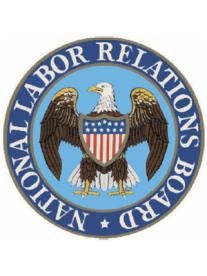It’s a nearly universal truth that all employers have certain rules they have put in place to govern certain aspects of the workplace. Such rules include workplace conduct rules, rules relating to use of social media, solicitation and distribution policies, and the list goes on. Many if not most employers inform employees of these rules through the ubiquitous “employee handbook.” If you have been a regular visitor to this blog, you already know that over the past few years, the National Labor Relations Board (NLRB) has essentially become the employee handbook police, issuing decision after decision striking down employer’s – both unionized and non-union – workplace rules as unlawful. We have previously written about the NLRB and its General Counsel’s stance on the legality of handbook rules, but now, in light of the NLRB’s most recent decision in William Beaumont Hospital [PDF], it is a topic worth revisiting.
The NLRB’s April 13 decision in William Beaumont Hospital is important because it is the lengthiest explanation to date, on both sides of the issue, as to how the NLRB does (and, from the dissenting NLRB’s member’s perspective, how it should) evaluate workplace rules established by employers. The discussion in the case revolved around the standard the NLRB applies when reviewing employer rules. This standard which came out of a case called Lutheran Heritage Village-Livonia(Lutheran Heritage), explains that an employer’s rule violates Section 8(a)(1) of the National Labor Relations Act if it would “reasonably tend to chill employees in the exercise of their Section 7 rights.” Rules that are specifically intended to prevent the exercise of a right – i.e., a rule that explicitly prohibited union organizing – or a rule that is applied to interfere with protected rights – i.e., applying an otherwise lawful non-solicitation policy only to prohibit union-related solicitation – violates this standard. But what about rules that on their face do not directly implicate protected rights, and which are not applied to restrict those rights? Put another way, can the mere maintenance of a facially neutral rule violate the NLRA? Under Lutheran Heritage, the answer is yes, if an employee would “reasonably construe” the rule to restrict the employee’s ability to engage in activities that are protected under the statute. Those rights include not only the right to engage in union organizing activity and to bargain collectively, but also to engage in other concerted activities for the purpose of mutual aid or protection.
Enough of the dry legal stuff. Why is William Beaumont Hospital important? First, it upheld the Lutheran Heritage standard, which as the dissent in the case argues, deems “facially neutral policies” unlawful even when not applied in an unlawful manner. Second, the case is important because of the dissent. Citing to various U.S. Supreme Court decisions, the dissent forcefully criticizes the NLRB majority for endorsing and refusing to correct the Lutheran Heritage test, which the dissent argues (and anyone who has been on the unfortunate end of an NLRB charge dealing with policies will agree) results in “arbitrary results.” In its place, the dissent proposes a balancing test, whereby employees’ Section 7 interests are weighed against the employer’s particular business justifications for the rule in question. Unmoved, the majority pushed back, suggesting that a finding that “a particular rule threatens to have a chilling effect does not mean, however, that an employer may not address the subject matter of the rule and protect his legitimate business interests [with a] more narrowly tailored rule that does not infringe on Section 7 rights.”
So for now, Lutheran Heritage remains the test that will be applied to employer rules. Importantly, though couched in “labor” legalese, this standard is applicable to all employers, whether their employees are unionized or not. That means every employer should be on the lookout for these NLRB decisions, tweaking policies as necessary to ensure they (hopefully) comply with the current (but ever shifting) interpretation given by (at least some members) of the NLRB.




 i
i

